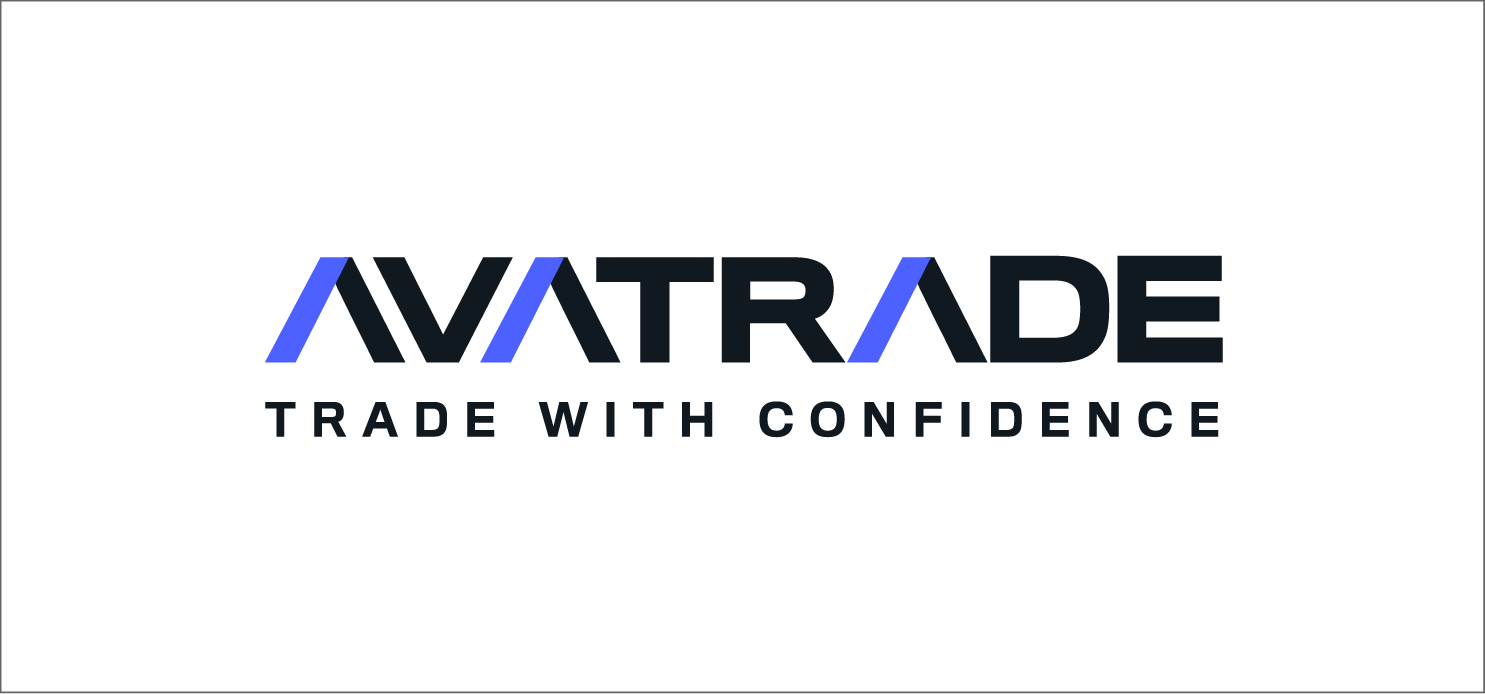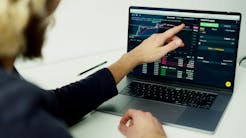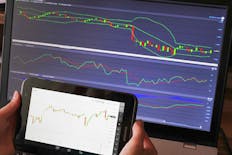8 Best Futures Trading Brokers (2026 Review)
All products and services featured are independently selected by WikiJob. When you register or purchase through links on this page, we may earn a commission.
- A list of the Top Futures Trading Brokers for January 2026:
- Comparison Chart of the Best Futures Trading Brokers for January 2026
- Description of the Best Futures Trading Brokers for January 2026
- What Is Futures Trading?
- What You Need to Know About Futures Trading
- What to Look for When Choosing a Broker in 2026
empty
empty
empty
empty
empty
empty
- Frequently Asked Questions
- Final Thoughts
A list of the Top Futures Trading Brokers for January 2026:
Comparison Chart of the Best Futures Trading Brokers for January 2026
Regulation FCA, ASIC, CySEC, MAS, FSCA, FMA, FSP | Platforms Plus500 WebTrader | Commission May apply | |||
Regulation FCA, DFSA, CySEC, BaFIN, ASIC, CMA, SCB | Platforms MetaTrader 4 (MT4), MetaTrader 5 (MT5), cTrader, TradingView | Commission May apply | |||
Regulation CBI, ASIC, FSC | Platforms MetaTrader 4, MetaTrader 5, AvaTradeGO, AvaTradeAct | Commission Spread-based fees | |||
Regulation ASIC, CFTC, NFA, MAS | Platforms IG Trading Platform, MetaTrader 4 | Commission May apply | |||
Broker Saxo | Regulation FCA, FSA, MAS, ASIC, FINMA, ACPR, JFSA, SFC | Platforms SaxoTraderGO, SaxoTraderPRO | Commission Commission-based pricing | ||
Broker ActivTrades | Regulation FCA | Platforms ActivTrader, MetaTrader 4, MetaTrader 5 | Commission Depends on account | ||
Regulation FINRA, NFA, CFTC | Platforms TradeStation, Web Trading Platform | Commission Commission-based pricing | |||
Broker Interactive Brokers | Regulation SEC, FINRA, FCA, ASIC | Platforms Trader Workstation (TWS), WebTrader, MobileTrader | Commission Tiered pricing structure |
Description of the Best Futures Trading Brokers for January 2026
When it comes to selecting a futures trading broker, how do you know which broker is the right fit for you and your trading needs?
There are numerous trading brokers to choose from, so research the best option for your specific trading requirements.
Below are nine futures brokers who have ranked well in our research. However, you must do your due diligence before selecting a broker and check all details carefully.
1. Plus500
Pros
- Regulated by the Financial Conduct Authority
- Over 2,500 significant financial instruments
- Negative balance protection
- 24/7 customer support
Cons
- Not currently available to US clients
- No API integrations
- CFDs only
- No social copy trading
Plus500 is a CFD provider and offers only CFDs.
Another user-friendly entry on our list of the best forex and CFD brokers in the UK is Plus500, providing an easy-to-use and accessible service.
You’ll find over 60 CFD currency pairs with competitive spreads, no commission and available leverage of up to 1:30.
Although MetaTrader and cTrader are not available, Plus500’s own platform is very user-friendly. It comes with a range of intuitive risk management features and is available on web and mobile.
Plus500 requires a minimum deposit of £100 if using a credit or debit card, and £500 if using bank transfer.
Plus500 UK Ltd authorized & regulated by the FCA (#509909).
2. Pepperstone
Pros
- Extensively regulated
- No minimum deposit
- Low fees and mostly free withdrawals
- Good customer service
Cons
- No investor protection for clients outside UK, EU and EEA
- Withdrawal fee for international bank wires
- CFDs only
Pepperstone, while renowned for its forex and CFD trading capabilities, does not offer traditional futures trading. Instead, it focuses on providing futures-like trading opportunities through Contracts for Difference (CFDs).
While Pepperstone does not offer traditional futures trading, its extensive range of CFDs on commodities and indices provides a viable alternative for traders looking for futures-like trading opportunities.
With advanced trading platforms, competitive pricing, and comprehensive educational resources, Pepperstone stands out as a strong choice for traders interested in speculating on the price movements of various financial instruments in a manner similar to futures trading.
3. AvaTrade
Pros
- Trading signals and strategies
- Automated trading
- User-friendly interface
- Variety of trading pairs
- Transparency
Cons
- Reliance on signals
- Subscription cost
AvaTrade is renowned as one of the best futures trading brokers, offering traders a comprehensive platform with a wide range of features and services tailored to meet their needs.
AvaTrade is a regulated broker with licenses from multiple reputable financial authorities, including the Central Bank of Ireland, the Australian Securities and Investments Commission (ASIC), and the Financial Services Commission (FSC) of the British Virgin Islands. This regulatory oversight ensures that AvaTrade operates with transparency, security, and adherence to strict standards, instilling trust among traders.
AvaTrade provides access to a wide range of global futures markets, including commodities, indices, and interest rates futures. Traders can speculate on the price movements of various futures contracts, allowing them to diversify their portfolios and hedge against risks in different asset classes.
AvaTrade offers user-friendly trading platforms suitable for traders of all levels of experience. Whether using the popular MetaTrader 4 (MT4) platform, the proprietary AvaTradeGO mobile app, or the advanced AvaTradeAct platform, traders have access to intuitive interfaces, advanced charting tools, real-time market data, and customizable features to execute futures trades efficiently.
AvaTrade offers competitive pricing for trading futures contracts, with transparent fee structures and tight spreads. This ensures that traders can execute trades with minimal costs, allowing them to optimize their trading performance and maximize their returns.
AvaTrade provides access to leverage and margin trading on futures contracts, allowing traders to amplify their trading positions with a relatively small amount of capital. While leverage can magnify both profits and losses, it provides an opportunity for traders to increase their exposure to the futures markets and potentially enhance their returns.
AvaTrade offers a range of risk management tools to help traders mitigate potential losses when trading futures contracts. These tools include stop-loss orders, which allow traders to specify the maximum amount they are willing to lose on a trade, helping to protect their capital and manage risk effectively.
4. IG
Pros
- Highly regulated
- MetaTrader 4 (MT4)
- Over 10,000 instruments
- Available in the UK and US
- 24/7 customer support
Cons
- High fees
- No deposit compensation scheme for US accounts
- No copy trading
- Inactivity fees
IG is a great share trading platform for beginners thanks to its user-friendly interface and extensive educational resources.
Pros of IG include a wide range of trading instruments and markets, as well as the ability to access multiple account types and trading platforms. The platform also offers a demo account for beginners to practise trading strategies before investing real money.
However, IG isn’t the cheapest share trading platform, with relatively high trading fees and a minimum deposit requirement of £250 when paying by credit/debit card or PayPal.
In terms of additional fees, IG charges a commission fee for share trading, starting from £8 per trade. There’s also a custody fee of 0.25% per year for holdings of £250 or more.
Overall, IG is a solid choice for beginners looking for a user-friendly platform with extensive educational resources, but investors should be aware of its fees and minimum deposit requirements.
5. Saxo
Pros
- Heavily regulated
- Good product portfolio
- Low forex fees
- No withdrawal or inactivity fees
Cons
- Does not accept US clients
- High fees for options, futures and bonds
Saxo is well-suited for futures trading, offering a robust platform that caters to both experienced traders and those new to the futures markets.
Saxo provides access to a wide array of futures contracts across more than 25 global exchanges, covering various asset classes including commodities, equity indices, energy, metals, and agriculture. This global access allows traders to diversify their portfolios and engage with different markets.
Saxo offers two main trading platforms — SaxoTraderGO and SaxoTraderPRO. Both platforms are equipped with advanced tools that are essential for futures trading, such as detailed chart analysis, technical indicators, and the ability to handle complex orders. SaxoTraderPRO, in particular, is tailored for professional traders and offers features like a customizable workspace and direct market access.
Saxo offers competitive and transparent pricing for futures trading. The broker provides clear information on commission rates, exchange fees, and other costs associated with trading futures, which helps traders manage their trading expenses effectively.
Understanding and managing risk is crucial in futures trading. Saxo’s platforms include features such as stop-loss orders and margin breakdowns that help traders control and mitigate risks associated with highly leveraged positions.
Saxo commits to trader education by offering a range of educational resources, including webinars, tutorials, and articles specifically focused on futures trading. Additionally, Saxo’s customer support is readily available to assist traders with any questions or issues, providing expert advice and timely help.
Trading with Saxo, a globally regulated and licensed bank, ensures a secure and reliable trading environment. Compliance with international standards provides traders with peace of mind regarding the safety and security of their investments.
6. ActivTrades
Pros
- No minimum first-time deposit
- Optimal trading execution
- More than 1,000 CFDs
- State-of-the-art trading infrastructure
- Customer support on 14 languages via email, chat and telephone
Cons
- No copy trading
- Not available for US clients
- No bonus for EU based clients
ActivTrades is a traditional CFD broker and has been trading for more than 20 years on 140 markets. ActivTrades is authorized and regulated by the FCA, CSSF and SCB.
Its strong points include:
- No minimum first-time deposit
- No commissions
- Several payment methods for deposits and withdrawals
- Tight spreads from 0.5 pips
It offers one of the best execution speeds in the industry with low latency below 0.004s.
It utilizes the most advanced technology to improve users' trading efficiency – users can automate trades, build integrations and create trading apps using ActivTrades' market-leading CFD and spread betting technology.
Exceptional trading infrastructure is available on ActivTrader and MetaTrader 4 and 5.
ActivTrades invests deeply in specially developed educational materials for its clients – including webinars, regular outlooks, manuals, etc.
Type of offers: ActivTrades focuses on well-developed products in its trading portfolio. Customers can choose from over 1,000 CFD or spread betting instruments across forex, indices, shares, commodities, financials and ETFs.
It also offers investing solutions for its institutional partners.
Spread betting allows UK residents ONLY to trade the prices of financial instruments, including forex, indices, commodities and LSE shares.
7. TradeStation
Pros
- No minimum deposit
- Commission-free stocks and ETFs
- Advanced platform suits active traders
- Offers crypto trading
- Available on web, mobile and desktop
- Good educational resources
- Demo account
Cons
- Customer support is not 24/7
- Inactivity fee
- No debit/credit card deposits or withdrawals
- Some research tools aren't free
Best for: Low commission
TradeStation shines when it comes to technology. Its platform is tech-rich and ideal for online traders. TradeStation also assists traders on its platform, which offers both desktop and web versions.
This trader was rated number one for platform technology for the ninth consecutive year in Stockbrokers.com's 2021 Online Broker Review.
TradeStation has two pricing options available, offering traders flexibility.
It offers low rates of commission compared to its competitors, making it a budget-friendly option.
8. Interactive Brokers
Pros
- Regulated
- Wide range of offerings
- Low commission
- Socially responsible
- 24/5 customer support across multiple channels
Cons
- No additional platforms
- Inactivity fees
Best for: Professional traders
Interactive Brokers is a great option for professional traders. Its platform boasts a range of trading tools and order types to choose from.
However, the platform is not particularly beginner-friendly as its setup is more advanced.
The minimum deposit for Interactive Brokers can be $2,000 for certain accounts, so it is not a viable option for every trader.

What Is Futures Trading?
Futures trading involves contracts that allow you to set a price for a certain asset in the present which can then be exchanged in the future.
Also known as ‘futures contracts’, this kind of agreement is legally binding and is required to be fulfilled either by financial payment or delivery of the asset.
Usually, two parties – one buyer and one seller – set a price at which to exchange an asset at a future date. Futures trading means that the buyer is obliged to buy the underlying asset, while the seller is obliged to sell the agreed asset when the contract expires, or before this date.
For example, if a buyer purchases an October oil futures contract, they are committing to purchasing 2,000 barrels of oil at the agreed price on the October expiration of the contract, regardless of the oil’s market value at the time. The seller is agreeing to sell those 2,000 barrels of oil at the agreed price, regardless of their current worth.
In futures trading, a variety of different assets are traded, from commodities and currencies to indexes and everything in between, offering traders a wide range of products.
Futures trading is so popular because the contracts can be sold right up until the set fulfillment date. Regardless of what product or asset is being traded, the buyer and seller of any futures contract is obliged to fulfill their end of the agreement on or before the contract end date.
What You Need to Know About Futures Trading
A futures contract stands regardless of the market value of the asset at the time of fulfillment. This means that usually, either the buyer or seller loses out.
For instance, if the agreement is to buy 2,000 barrels of oil for $20,000, as mentioned above, the market value could be higher or lower than this at the time the contract expires. Either the buyer ends up paying more than the product is worth or the seller ends up losing some of the value of the product they have sold.
It is for this reason that futures trading is considered a risky means of trading. Traders can benefit significantly from futures trading, but it is important to understand that the risks are substantial.
Another key point to note is that futures contracts can be bought and sold up until the contract’s expiration date, which is when the contract must be fulfilled with the agreed asset or its financial value.
Futures contracts work as a means for supply chains to manage the constant changes of market prices on items, in addition to being a way for investors and traders to benefit from these price fluctuations.
Getting started in trading futures is a relatively easy process. An account is opened with a broker that supports the trading markets to be utilized. A futures broker will usually ask about the experience of a new trader, including their knowledge of investing and understanding of net worth, before offering support.
What to Look for When Choosing a Broker in 2026
When it comes to selecting a futures broker, it is important to be aware that there is no set industry standard in terms of associated fees.
Each futures broker offers a slightly different approach and service. Some brokers offer a large amount of information and advice, while others simply provide a quote and a basic chart.
When choosing a broker, there are some key questions to consider, to make the right choice for your circumstances:
Does It Offer a Virtual Trading Account?
While some futures broker sites will offer the option to open a virtual trading account, where you can practice trading before committing your funds, others won’t offer this service.
Having the opportunity to practice trading before beginning to trade properly is invaluable, especially for anyone new to futures trading.
Being able to practice trading offers a route to understanding how futures markets work and how to use the market.
Many experienced traders take advantage of virtual trading accounts to test out new strategies.
Is It Regulated?
When choosing a trading broker, it is important to ensure that the broker is operating securely. You will be entrusting the broker with your funds and sensitive information, so it is crucial to ensure that you have selected a trustworthy, reliable one.
Opting to work with a regulated broker is important as you will know it has a strong reputation with the correct credentials in place.
A regulated broker will be required to operate at very high standards and work with fairness and transparency at the forefront of everything.
Regulation information should always be visible on a trader’s website.
What Are the Associated Costs?
Different brokers charge different rates and operate these in a range of ways, so it is important to look into this before selecting a broker.
There are two types of futures broker:
- Transactional – Usually operate a one-size-fits-all approach. Every trader signs up and pays the same costs for the same services.
- Relationship-based – More focused on ensuring that its clients are successful. These brokers tailor the service and costs to meet their clients’ needs wherever possible, in terms of support, services and tools offered.
It is also worth looking at whether the broker requires a minimum investment amount to get started. Some brokers request high amounts which may not be viable for new traders.
Don’t forget to read the small print of a broker’s service agreement to ensure that you fully understand what rules are in place. This will help you to avoid unexpected costs when working with a futures broker.
Is 24/7 Support Available?
The futures markets operate constantly, running 24 hours a day, seven days a week, so it is helpful to have support available whenever you need it.
Having access to a futures broker who is always available makes navigating the market less daunting.
Is the Trading Technology up to Scratch?
It is important to ensure that a futures broker can offer superior trading technology, designed to make accessing the market as simple and easy as possible.
It is also worth asking whether multiple trading platforms are available, and if so, which platform offers the best option for your specific trading type and goals.
Are Futures Market Research and Reports Readily Available?
Research and reports will be a key aspect of your trading, so any trading broker you work with must have a wealth of market research and reports to refer to.
This content must be kept up to date so that it contains the latest trading information.
Frequently Asked Questions
Futures trading is the buying or selling of futures contracts, which are agreements to buy or sell a particular asset at a predetermined price and date in the future.
The assets can include commodities, stocks and currencies, among others.
Futures trading is a way for investors to speculate on the price movements of these assets and potentially profit from them.
The best futures trading broker will depend on a trader's individual needs, preferences and experience level.
When choosing a futures trading broker, traders should consider factors such as commissions and fees, trading platforms, research and educational resources, customer service, and regulatory compliance.
No, futures trading requires a broker as it is conducted on regulated exchanges such as the Chicago Mercantile Exchange (CME) or the New York Mercantile Exchange (NYMEX).
To open an account with a futures trading broker, traders need to provide personal and financial information, complete an application form, and agree to the broker's terms and conditions.
Traders may also need to deposit funds into their account before they can start trading.
The risks of futures trading include market volatility, leverage, liquidity risk, margin calls and counterparty risk.
The benefits of trading futures include high liquidity, leverage, diversification and the ability to trade a wide range of assets.
The risks of trading futures include the potential for significant losses, margin calls and the need to constantly monitor positions.
The broker with the lowest fees on trading futures will depend on a trader's individual needs and trading style.
Some brokers offer lower commissions but may charge additional fees for data or other services, so traders should compare different brokers and their fee structures before making a decision.
Futures trading can be complex and risky, so it may not be suitable for all beginners.
However, with proper education, risk management and practice, beginners can learn to trade futures and potentially profit from them.
Traders can manage their risk when trading futures by using stop-loss orders, setting risk and reward ratios, diversifying their portfolio, and managing their margin requirements.
Traders should choose futures contracts that align with their trading strategy, risk tolerance and market outlook.
They should also consider factors such as liquidity, volatility and contract specifications such as expiration dates and tick sizes.
No, you don't necessarily need $25,000 to start trading futures. However, many brokers require a minimum balance to trade futures, and it's common for that minimum to be $10,000 or more.
In addition, some brokers may require a higher balance to access certain trading platforms or services.
Yes, trading futures can be profitable. However, as with any type of trading, there are risks involved and profitability is not guaranteed.
Futures trading allows traders to speculate on the price movements of a variety of assets, including commodities, currencies and stock indices.
This provides opportunities for traders to profit from market fluctuations. However, it's important to have a solid understanding of the market, as well as a risk management strategy, in order to be successful.
Yes, in most cases, you will need a margin account to trade futures. A margin account allows traders to borrow funds from their broker to trade larger positions than they would be able to with only their own funds.
This can amplify both profits and losses.
Margin requirements for futures trading can vary depending on the broker and the asset being traded.
It's important to understand the margin requirements and potential risks associated with trading on margin before opening a margin account.
Trading fees at futures brokers can vary widely depending on the broker and the asset being traded.
In general, futures trading fees include commissions, exchange fees and clearing fees.
Some brokers may also charge account maintenance fees or other miscellaneous fees.
It's important to compare fees across multiple brokers and consider factors such as trading platforms, customer service, and research and analysis tools when choosing a futures broker.
In addition to trading fees, there may be other fees associated with using a futures broker.
These can include account maintenance fees, wire transfer fees and fees for transferring assets to or from the broker.
Some brokers may also charge fees for using certain trading platforms or for accessing research and analysis tools.
It's important to understand the full fee structure of a broker before opening an account, as these fees can add up over time and affect the overall profitability of your trading.
For beginners, it's important to find a futures broker that offers a user-friendly trading platform, educational resources and a low minimum deposit.
Some popular brokers for beginners include TD Ameritrade, which offers a comprehensive educational center and a user-friendly trading platform, and NinjaTrader, which has a low minimum deposit and offers a free trading simulator to practice with.
Other brokers that may be suitable for beginners include Interactive Brokers and TradeStation.
Intraday margin is the amount of money required to hold a futures position during the trading day.
Some brokers offer low intraday margin rates, which can allow traders to hold larger positions with less capital.
Brokers that offer low intraday margin rates include AMP Futures, which offers a $400 day trading margin for many futures contracts, and Stage 5 Trading, which offers intraday margins as low as $200.
Other brokers that may offer low intraday margin rates include Tradovate, Infinity Futures and PhillipCapital.
Professional futures traders may have different needs than beginners or casual traders.
Some important factors for professional traders may include access to advanced trading platforms and tools, low fees and fast execution times.
Some of the best futures brokers for professional traders include Interactive Brokers, which offers a wide range of trading platforms and tools, as well as low commissions and margin rates.
Mobile trading has become increasingly popular, and many futures brokers now offer mobile trading apps.
Some of the best brokers for mobile futures trading include TD Ameritrade, which offers a mobile app with a user-friendly interface and a variety of trading tools, and E*TRADE, which has a mobile app that allows for customizable alerts and watchlists.
Other brokers that may be suitable for mobile futures trading include Interactive Brokers, TradeStation and NinjaTrader.
When choosing a broker for mobile trading, it's important to consider factors such as ease of use, speed of execution, and the availability of research and analysis tools.
Desktop trading platforms offer a more robust and customizable trading experience than mobile apps.
Some of the best brokers for desktop futures trading include Interactive Brokers, which offers a wide range of advanced trading tools and access to multiple markets and asset classes, and TradeStation, which has a powerful and customizable trading platform with advanced charting tools.
Other brokers that may be suitable for desktop futures trading include NinjaTrader, TD Ameritrade and CQG.
When choosing a broker for desktop trading, it's important to consider factors such as trading platform features, ease of use and customer support.
Dedicated futures traders may have specific needs that require a broker with advanced trading tools and features.
Some of the best brokers for dedicated futures traders include Rithmic, which offers low-latency trading platforms and direct market access, and CQG, which provides advanced charting and analysis tools.
Other brokers that may be suitable for dedicated futures traders include Trading Technologies, Gain Capital and Stage 5 Trading.
When choosing a broker for dedicated futures trading, it's important to consider factors such as trading platform features, speed of execution, and access to multiple markets and asset classes.
Final Thoughts
All of the above brokers are popular choices with futures traders and are worth taking the time to research. The best one for you will depend on whether you are an active trader or new to the world of trading.
It is important to carry out your due diligence and ask the questions outlined above before choosing the right broker for you.
WikiJob does not provide tax, investment, or financial services and advice. The information is being presented without consideration of the investment objectives, risk tolerance, or financial circumstances of any specific investor and might not be suitable for all investors. Past performance is not indicative of future results. Investing involves risk including the possible loss of principal.











